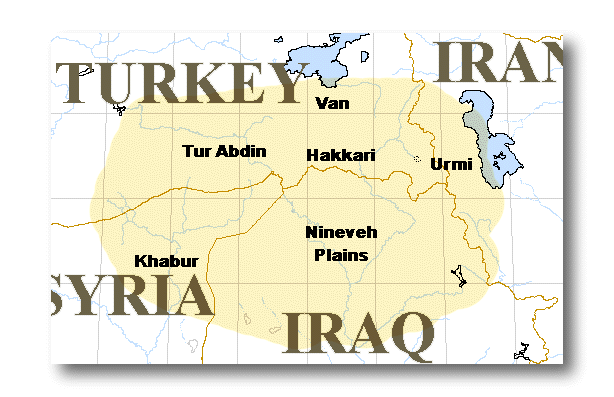


The Fall of the Ottoman Empire and the Creation of Modern Turkey
Following the collapse of the Ottoman Empire at the end of World War I, the new Turkish Republic, under Mustafa Kemal Atatürk, embarked on an aggressive program of nation-building. Atatürk and other nationalist leaders were eager to define a cohesive Turkish identity that would unify the population under the banner of a modern, secular, and homogenous nation-state. In this process, non-Turkish ethnic and religious groups, including the Assyrians, were often relegated to the status of "minorities" or even "outsiders" despite their historical presence in the region.
For the Assyrians, the term "minority" became a tool used to both simplify and erase their complex, multi-millennial identity. The rise of Turkish nationalism sought to align the identity of the new nation with Turkish ethnic and linguistic supremacy. This political agenda required the systematic exclusion of indigenous groups like the Assyrians who had deep-rooted historical connections to the land long before the establishment of the Turkish Republic. By labelling Assyrians as "minorities," the new state effectively erased their importance as one of the region's foundational peoples.
Moreover, this label was often coupled with aggressive policies of forced assimilation, land dispossession, and cultural erasure. Assyrians, along with Armenians and Greeks, were subjected to persecution, massacres, and displacement--events that culminated in the Assyrian Genocide (also known as the Seyfo) during the final years of the Ottoman Empire. The use of the term "minority" in the Turkish context was thus a way to silence any potential claim the Assyrians might have had to their ancestral lands and their role in the shaping of the region's history.
The Birth of Iraq and the "Minority" Label
The establishment of modern Iraq in the aftermath of World War I, under British mandate, also contributed to the framing of Assyrians as "minorities" within their own homeland. Iraq was a multi-ethnic state, home to Arabs, Kurds, Turkmen, and Assyrians, but the formation of a new Arab-majority nation-state left little room for indigenous groups like the Assyrians to assert their political, cultural, or territorial rights.
After Iraq gained independence in 1932, Assyrians -- who had been crucial in the development of Iraq's modern political and social systems -- were increasingly pushed to the margins of Iraqi identity. In the early 20th century, Assyrians were integral to the development of Iraqi infrastructure, education, and the military. However, the emergence of Arab nationalism in the 1920s and 1930s saw a concerted effort to consolidate the Arab identity at the expense of other groups.
By the 1940s and 1950s, Assyrians found themselves categorized as a "minority," a term that was used to diminish their role in Iraq's state-building process. This was part of a broader trend in the Middle East, where the creation of national borders in the post-colonial period often marginalized indigenous peoples in favor of new, dominant ethnic or religious groups. The term "minority" was used to obscure Assyrians' ancient connection to Mesopotamia and instead cast them as a subordinate and secondary group.
The Iraqi government, especially under Saddam Hussein, further entrenched the marginalization of Assyrians by using the term "minority" to justify discriminatory laws, policies, and state violence. The Assyrian community was not only physically displaced from their ancestral homes due to Arabization policies, but their cultural identity was also undermined through a systematic push for assimilation into Arab identity.
The Term "Minority" as a Tool of Political Control
In both Turkey and Iraq, the use of the term "minority" had a strategic purpose: it served to limit the political power, rights, and recognition of Assyrians. The term was part of a broader effort to centralize authority in the hands of the majority population and create a more uniform national identity. It was not simply a reflection of Assyrians' numerical size but a deliberate political manoeuvre to reduce their influence and legitimacy.
By labelling Assyrians as "minorities," both Turkey and Iraq reinforced the idea that these groups were secondary to the dominant national narrative. They were framed as something less than full participants in the cultural, political, and economic life of the nation. This perception was compounded by laws and policies that further marginalized Assyrians, denying them access to education in their language, the right to self-govern, and the ability to preserve their cultural heritage.
The term "minority" was particularly damaging in this context because it ignored the Assyrian people's deep historical and cultural connection to the land of Mesopotamia. It also rendered invisible the critical role Assyrians had played in the region's ancient civilizations and contemporary development. In essence, it cast them as interlopers in their own homeland.
Reclaiming the Narrative
The use of the term "minority" to describe Assyrians in Turkey and Iraq not only reduces their significance but also perpetuates the erasure of their rightful place in the history of Mesopotamia. Assyrians are not simply a smaller group living in a larger nation; they are the indigenous people of the land, with a profound cultural, religious, and historical legacy that spans millennia.
As Assyrians continue to fight for their rights, recognition, and survival, it is crucial to challenge the use of the term "minority" in this context. While it may have been a convenient label for nationalist agendas, it fails to reflect the true complexity of Assyrians' identity. Reclaiming the narrative surrounding the Assyrian people means acknowledging their contributions to world civilization and their role as one of the foundational peoples of the Middle East.
Rather than being cast as a "minority," Assyrians should be recognized for what they truly are: the indigenous, people of the land of two rivers.
Guest Editorial Policy

or register to post a comment.